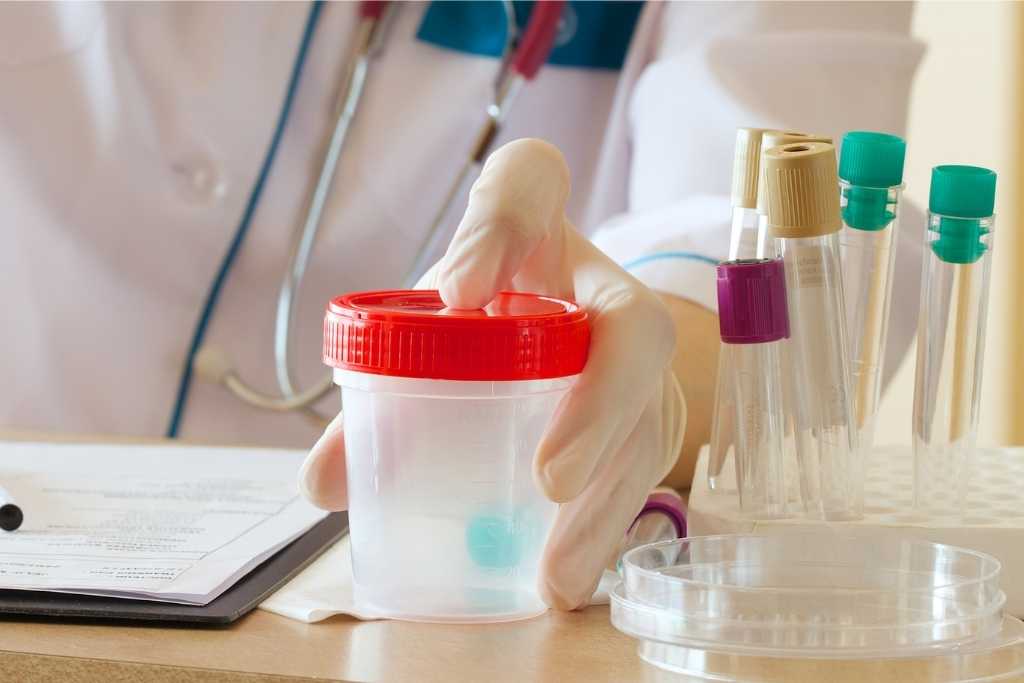A shocking 30 million people in the United States are dealing with kidney disease, and most are not even aware they have it. That means 90% of people with chronic kidney disease have not been screened. Ultimately, this also means that they’re at risk for the problems that can crop up as a result. And uremic neuropathy is one of them.
Our world is full of toxins. And not just the man-made types, either. In the human body, the liver, kidneys, and pancreas all play an essential role in filtering out toxins and other waste products that the body doesn’t need. Often, these toxins are environmental and hiding in the foods we eat or air we breathe.
While your kidneys were made to handle quite a lot, they were not built to withstand the increasingly high demands of our modern (and sometimes highly toxic) world. When a body is in good health, its filters are able to do their jobs just fine. But certain lifestyle choices can have a negative impact on kidneys and their ability to function, and lead to additional problems like uremic neuropathy, such as:
- nutrient-insufficient diet
- regular use of over-the-counter medications
- salty foods
- high-glycemic foods
- smoking
Certain diseases can impact kidney health as well, like:
- diabetes
- hypertension
- obesity
- metabolic syndrome
- genetic kidney diseases
Together, the impact of our toxic lifestyles makes kidney disease a quiet killer that many don’t find out they’re dealing with until it’s far too late.
Uremic Neuropathy: A Type of Neuropathy Caused by Kidney Disease
Uremic neuropathy is a distal sensorimotor polyneuropathy caused by uremic toxins, toxins that are typically filtered out of the body by healthy kidneys. When kidney tissue is damaged, the filtration of urea and other toxic waste products are reduced, leaving them in the bloodstream.
Consequently, toxins make their way throughout the body, where they can go on to cause damage to other body tissues. Due to the delicate nature of nerve tissue, uremic neuropathy is a result of advanced kidney disease in as many as 20% to 50% of kidney disease patients.
The severity of nerve damage is strongly correlated with the severity of the kidney damage. As kidney damage progresses, so does nerve damage right alongside it.
Uremic neuropathy is considered a dying-back neuropathy, meaning it begins in the longest axons farthest from the central body (the feet and/or hands) and works its way towards the center.
What are Uremic Neuropathy Symptoms?

The start of uremic neuropathy symptoms is typically rather subtle. Tingling and prickling sensations in the feet are most commonly reported first, but these early sensations may instead be felt in the hands.
Sensory nerve damage symptoms like increased pain and tingling or burning are most commonly the first felt. With continued progression, motor nerve damage symptoms and autonomic nerve damage symptoms may follow.
Muscle cramps and restless legs are reported by about 60% of uremic neuropathy patients, though these symptoms may also appear with kidney disease even when there is no accompanying nerve damage.
Sensory Symptoms of Uremic Neuropathy
- Burning
- Pain
- Buzzing
- Electrical shock
- Tingling
- Freezing cold
- Itching
- Pins and needles
- Numbness
Motor Nerve Damage Symptoms of Uremic Neuropathy
- Muscle weakness
- Muscle shrinkage
- Loss of balance
- Restless legs
- Cramping
- Twitching
- Tightening
- Foot deformation
Autonomic Nerve Damage Symptoms of Uremic Neuropathy
- Dizziness
- Heat intolerance
- Digestive issues
- Bladder issues
- Bowel issues
- Excessive sweating
- Blood pressure changes
What are signs that something is wrong with my kidneys?
Often, kidney failure causes no signs or symptoms and is detected only through lab tests. When experiencing the following signs and symptoms which have no presently known cause, ask your doctor to perform kidney function tests.
Signs and symptoms of kidney problems may include:
- Urine that is foamy, bloody, discolored, or brown
- Pain while urinating
- Decreased amount of urine, although sometimes output remains normal
- Swelling in arms, wrists, legs, ankles, around the eyes, face, or abdomen
- Restless legs while trying to sleep
- Joint or bone pain
- Pain in the mid-back where kidneys are located
- Feeling tired all the time
- Shortness of breath
- Mental confusion
- Weakness
- Irregular heartbeat
- Chest pain or pressure
- Nausea
How to Test for Kidney Disease

When kidney disease is in question, your doctor will ask you about your family history, whether you’ve been diagnosed with high blood pressure, if you’ve taken certain medications known to affect kidney function, and about your signs and symptoms.
Next, your doctor may perform a physical kidney exam and also check for signs of problems with your heart or blood vessels and nervous system.
Because most people with early kidney disease do not have symptoms, the National Kidney Foundations recommends everyone know their kidney function numbers.
Two Key Kidney Function Test to Get
- Blood Test: Glomerular Filtration Rate (GFR)
- Urine Test: Albumin to Creatinine Ratio (ACR)
Gomerular Filtration Rate Blood Test
Your blood will be tested for a waste product called creatinine. Creatinine comes from muscle tissue. When the kidneys are damaged, they have trouble removing creatinine from your blood. Testing for creatinine is only the first step. Next, your creatinine result is used in a math formula to determine your glomerular filtration rate (GFR). Your GFR number tells your doctor how well your kidneys are working. Stage 1 kidney disease indicates the lowest level of damage, and stage 5 indicates the most severe — end-stage kidney failure.
Albumin to Creatinine Ratio
Your urine will be tested for albumin, which is a type of protein. Your body needs protein. But it should be in the blood, not the urine. Having protein in your urine may mean that your kidneys are not filtering your blood well enough. This can be a sign of early kidney disease. If your urine test comes back “positive” for protein, the test should be repeated to confirm the results. According to the National Kidney Foundation, three positive results over three months or more is a sign of kidney disease.
If an abnormal result is received for either test, consult with a nephrologist, a kidney specialist, to determine the next steps to preserving your remaining kidney function and avoiding further tissue damage.
Is Uremic Neuropathy Reversible?
Fortunately, yes. The body is designed to repair itself. Just like the tissue of your skin that repairs itself even after dramatic trauma, or bones that repair themselves after being cracked, most tissues in the body have the same repair capabilities. Peripheral nerves included, up to a point of severity when there is not enough life left in the nerve tissue to repair itself. In other words, nerve damage is repairable—but when dead, it’s dead.
Often in clinical practice, patients are told that there is no cure for neuropathy. This discrepancy comes from the fact that most therapies in clinical practice rely on pharmaceuticals and surgeries—-and it is true, there is no pharmaceutical or surgical procedure that will regenerate nerves.
But as the body is designed, given the proper internal environment and the severity threshold has not been surpassed, it can regenerate itself, including peripheral nerve tissue, the same way it regenerates muscle, bone, skin, and other organ tissues.
What Stops Peripheral Nerves from Healing?
If peripheral nerves can heal…what stops them from healing? That’s a good question, and one that, as of late, has been receiving increased attention.
Turns out, at the root of all nerve damage and most diseases of our time, lies chronic inflammation. When this type of systemic inflammation is present over long periods of time—-such as in the case of unhealthy lifestyle choices combined with conditions like chronic kidney disease—-it causes alterations in the immune system. Essentially, chronic inflammation causes the immune system to malfunction. In this predicament, not only does it attack healthy tissue, but it prevents the immune system from shifting to its healing stage. We block the repair process from initiating altogether by creating a chronic inflammation blockade.
Fortunately, the opposite is true too. Mitigating chronic inflammation will remove the blockade and allow the initiation of regeneration.
Mitigating chronic inflammation after kidney damage has taken root is challenging. With hindered filtration, those damaging toxins are left to go about the body causing all kinds of havoc, furthering chronic inflammation and blocked healing.
However, a kidney disease diagnosis or uremic neuropathy diagnosis is not the time to throw in the towel. Instead, it is time to commit to the anti-inflammatory lifestyle changes that will go a long way towards your kidney health and nerve health.
Strategies for Healthy Kidneys and Avoiding Uremic Neuropathy
We make choices every day that either help our health or help to deteriorate our health. The more we do with kidney health in mind, the more we encourage healthy tissues and filtration function. In turn, these choices also go a long way to protect nerve health and minimize chronic inflammation, making nerve regeneration achievable.
Maintain Healthy Blood Sugar Levels
One of the leading factors for kidney health is to avoid elevated blood sugar levels. This is especially true if you’re already dealing with prediabetic or diabetic conditions. High blood sugar is highly inflammatory and destructive, preventing your quest for nerve health.
Keep Blood Pressure Controlled
Kidneys have a very dense network of blood vessels with a lot of blood flowing through them. Uncontrolled high blood pressure can cause the vessels around the kidneys to narrow, weaken, or harden, which blocks enough blood from reaching kidney tissue, causing further damage.
Exercise Moderately
Regularly exercising is important for keeping kidney and nerve tissue healthy by maintaining cardiovascular health. Simply raising your heart rate for at least 20 minutes a day, no fewer than five days per week, goes a long way to minimize chronic inflammation and relieve nerve pain. This can be achieved with methods as simple as a brisk walk around the neighborhood.
Avoid Smoking
It should not come as a surprise that smoking is a risk factor for kidney disease due to not only the effects of nicotine, but also the toxicity of chemicals in the smoke. While smoking may initially provide some pain relief for uremic neuropathy, research shows the relief is only short-term. Over time, smoking actually worsens pain.
Avoid Alcohol
Even without binge drinking, regularly drinking too often can damage the kidneys. Not only does alcohol damage kidney function and double the risk of kidney disease that causes uremic neuropathy, but directly damages peripheral nerves as well. In fact, 66% of individuals that chronically drink alcohol have alcohol-induced peripheral neuropathy.
Now, if you combine smoking and alcohol, you have about five times the chance of developing chronic kidney disease than people who don’t smoke or drink alcohol excessively on a regular basis.
Avoid Overuse of Pain Medications
If you take over-the-counter or prescription medicines for headaches, pain, fever, or colds, you may be taking a nonsteroidal anti-inflammatory drug (NSAID). NSAIDs include popular pain relievers and cold medicines that can damage your kidneys if you take them for a long time, or lead to acute kidney injury if you take them when you are dehydrated or your blood pressure is low.
Stay Hydrated
Water helps the kidneys remove toxins and wastes from your blood in the form of urine. Water also helps keep your blood vessels open so that blood can travel freely to your kidneys and bring essential nutrients to them.
Control Weight
Being overweight makes your kidneys have to work harder to filter wastes above the normal level. Over time, this extra work is damaging to kidney tissues.
Limit Added Salt
Lower the amount of sodium you eat each day by avoiding products with added salt, including many convenience foods, such as frozen dinners, canned soups, fast foods, and processed meats.
Avoid Too Much Potassium
If kidney function begins to decline, avoid high-potassium foods like bananas, oranges, potatoes, spinach, and tomatoes.
Limit Phosphorus
Normal working kidneys can remove extra phosphorus in your blood. But when their function begins to decline, they cannot remove phosphorus very well. Too much phosphorus can cause damage, including weak bones, and cause excessive itchiness. Phosphorus is found in whole-grains, dark sodas, and nuts.
Summary
Kidney disease is one of the many causes of peripheral neuropathy that too often goes missed until it’s too late. Risk factors for kidney disease and peripheral neuropathy go hand-in-hand. With 90% of people with stage 3 kidney disease not even knowing they have it, it is important to know your kidney function numbers. Ask your doctor to test your GFR or ACR.
Be proactive in preserving kidney function to protect your nerve health and promote regeneration concurrently. Ask you doctor to run kidney function tests.
6 Ways to Naturally Increase Nitric Oxide Levels for Nerve Health

When it comes to dealing with nerve damage and pain, your body sometimes needs all…
3 Best Essential Oils for Soothing Nerve Pain

Peripheral neuropathy comes with a number of different symptoms, each one seemingly more troublesome than…
66% of Chronic Drinkers Have Alcoholic Neuropathy

Chronic alcohol consumption is a contributing factor in a high number of peripheral neuropathy cases.…
6 Mind-Body Therapies You Need to Try

You know how the saying goes -- don't knock it before you try it. Mind-body…
What is Peripheral Neuropathy?

If you already have it, you basically know what peripheral neuropathy is. It just refers…
Best Value Red Light Therapy Panel Goes to Mito

As the popularity of red light therapy has grown quickly over the past few years,…
Joy Organics: The Clean Family-Owned CBD Brand

Joy Organics was started in a small Colorado town by Joy Smith in 2018. She…
Chronic Inflammation: The “Root” of Nerve Damage

Most of us think of the immune system as protection to keep us safe from…











